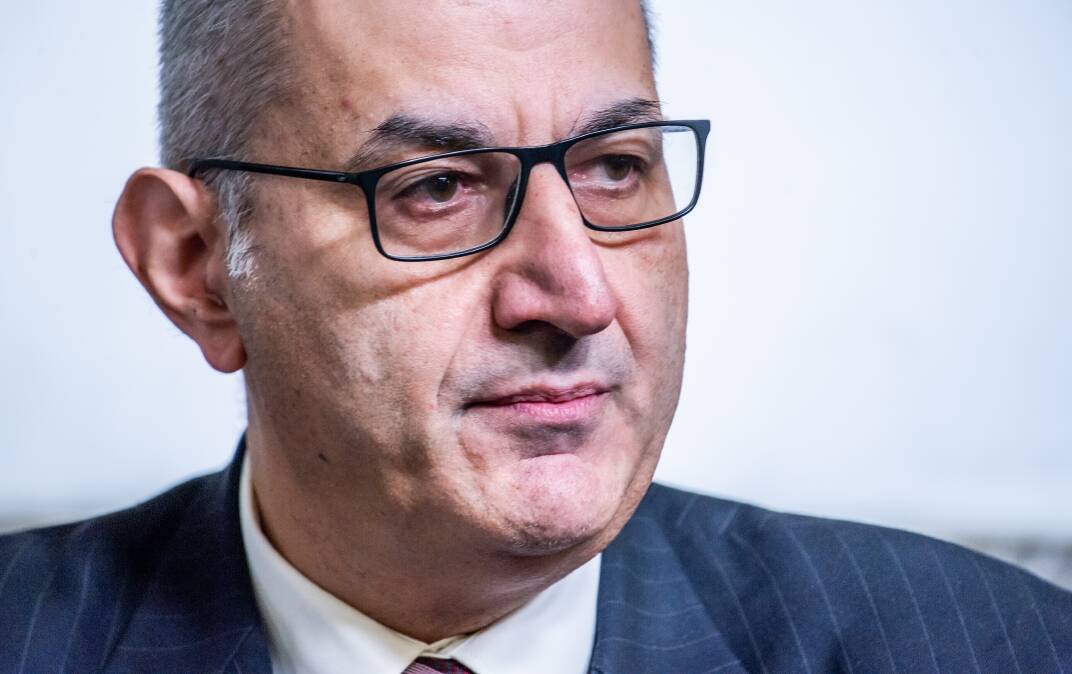For years, Michael Pezzullo has been regarded as one Australia's most powerful public servants. Some have even described him as seemingly "untouchable".
But this week, the Home Affairs Secretary agreed to stand aside while an investigation into his alleged correspondence with a Liberal party powerbroker is carried out, as revealed by Nine newspapers. There are also reports he won't return.
It is not suggested the messages show corrupt or illegal conduct but that Mr Pezzullo allegedly overstepped the impartial and apolitical standard expected of public servants.
Those principles are written into APS values and code of conduct - a code that Mr Pezzullo expected others to follow stringently over the years, a former colleague of his told The Canberra Times.
Mr Pezzullo started his career in the public service in 1987, joining the Department of Defence as a graduate and reaching "senior middle" levels there after five years, The Canberra Times reported in 2015.
Reflecting on a career within the public service, Mr Pezzullo, in a 2015 speech, said that his younger self found "experience, age and, to some extent, ideological and almost philosophical gap between me and the next level up" would hinder his progression until he was "crusty, old and cynical".
Instead, he went "sideways" to the Department of Prime Minister and Cabinet before becoming a staffer to Labor's then foreign minister Gareth Evans and later deputy chief of staff to opposition leader Kim Beazley.

Mr Pezzullo's ambitions of building a powerful Home Affairs department can reportedly be traced as far back as the early 2000s, when he was advising Mr Beazley.
It was then, in 2001 in the wake of the September 11 World Trade Centre attack, that Labor's national security reform policy paper called for the establishment of Home Affairs - "the most powerful and focused peacetime ministerial arrangement for co-ordinating Australia's domestic security in our history."
It would be more than 15 years before former prime minister Malcolm Turnbull would announce the creation of Home Affairs.
In that time, Mr Pezzullo would rise up the ranks and oversee some of Australia's most controversial border policies, including Operation Sovereign Borders, a military-led initiative designed to deter asylum seekers coming to the country by boat.
Former Immigration Department media head Sandi Logan, who worked with Mr Pezzullo in the late 2000s and early 2010s, told The Canberra Times that even before the launch of Operation Sovereign Borders in 2013, Mr Pezzullo took a "quasi-military operational approach to people smuggling".
"Mike never liked to brook ... much talk that there was a better or an alternative approach to simply throwing guns and no roses at both the victims of people smugglers and the people smugglers themselves," Mr Logan said.
At the time, Mr Pezzullo was chief operating officer of Australian Customs and Border Protection Service.
Mr Logan left the public service in 2014, before Mr Pezzullo was appointed Secretary of the Department of Immigration and Border Protection and later head of Home Affairs.
Speaking on his time working with Mr Pezzullo, Mr Logan described him as "very intelligent".
"The one thing that I will never forget from my first encounter with him in a meeting was he made sure you knew he was the smartest man in the room," he said.
"But as can sometimes be the case, when people are so intelligent sometimes ... either by choice or by simply circumstance, they choose not to take onboard others' contributions."
Mr Logan also described Mr Pezzullo as "a control freak" with a "dystopian" view of the world.
"He made sure that any public comment that came out of the organisation was his," he said.
At the same, he added that Mr Pezzullo was known to be tough on public servants who "didn't toe the line and work within the public service code of conduct".
"Isn't that remarkable, that our 'master spy' is undone by a mobile phone, tapping away on WhatsApp and Signal ... the very thing that he harps on and on about to his staff and to others in the APS," he said.







